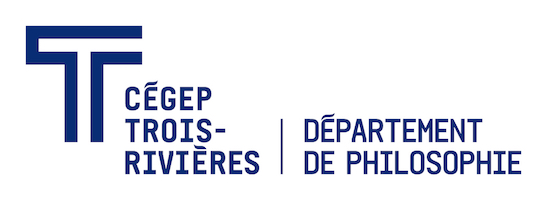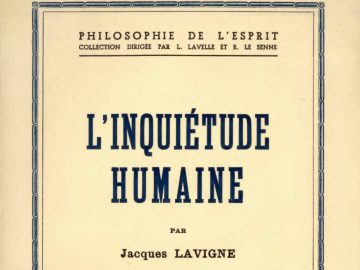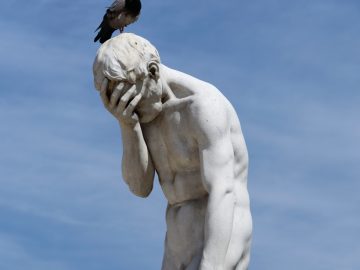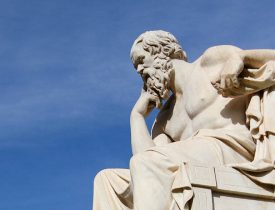Info repérée via les signets d’Atelier 10 – Nouveau Projet | À la demande de l’équipe de Politico Magazine, une trentaine de spécialistes tentent d’anticiper des trames de fond de la structuration du monde après la pandémie planétaire du coronavirus (Covid-19).
Entre autres, un retour « de la foi en des experts crédibles » (« A return to faith in serious experts »), sonnant le glas à la prolifération sociopolitique des pseudos sciences – comme l’idéologie de certaines Gender’s Studies niant la réalité biologique.
Ou encore, selon Lilliana Mason, le renouveau du cachet accordé aux services gouvernementaux et au rôle fondamental des services publics :
« The Reagan era is over. The widely accepted idea that government is inherently bad won’t persist after coronavirus. This event is global evidence that a functioning government is crucial for a healthy society. It is no longer “terrifying” to hear the words “I’m from the government, and I’m here to help.” In fact, that is what most people are desperately hoping to hear right now. We will see a rebirth of the patriotic honor of working for the government. » (source Politico Magazine)
De même, Amy Sullivan anticipe un investissement approfondi du sens de la spiritualité et du religieux :
« All faiths have dealt with the challenge of keeping faith alive under the adverse conditions of war or diaspora or persecution—but never all faiths at the same time. Religion in the time of quarantine will challenge conceptions of what it means to minister and to fellowship. But it will also expand the opportunities for those who have no local congregation to sample sermons from afar. Contemplative practices may gain popularity. And maybe—just maybe—the culture war that has branded those who preach about the common good with the epithet “Social Justice Warriors” may ease amid the very present reminder of our interconnected humanity. » (source)
Tout comme Sonia Shah anticipe des restrictions sur la consommation de masse et un détournement de ce type de mode de vie en faveur d’un retour à des rapports de communautés :
« In the best-case scenario, the trauma of the pandemic will force society to accept restraints on mass consumer culture as a reasonable price to pay to defend ourselves against future contagions and climate disasters alike. […] The end of mass quarantine will unleash pent-up demand for intimacy and a mini baby-boom. The hype around online education will be abandoned, as a generation of young people forced into seclusion will reshape the culture around a contrarian appreciation for communal life. » (source)
Entre autres.
On peut lire la trentaine d’idées d’experts anticipant, dans cet article de Politico Magazine : « Coronavirus Will Change the World Permanently. Here’s How ».














